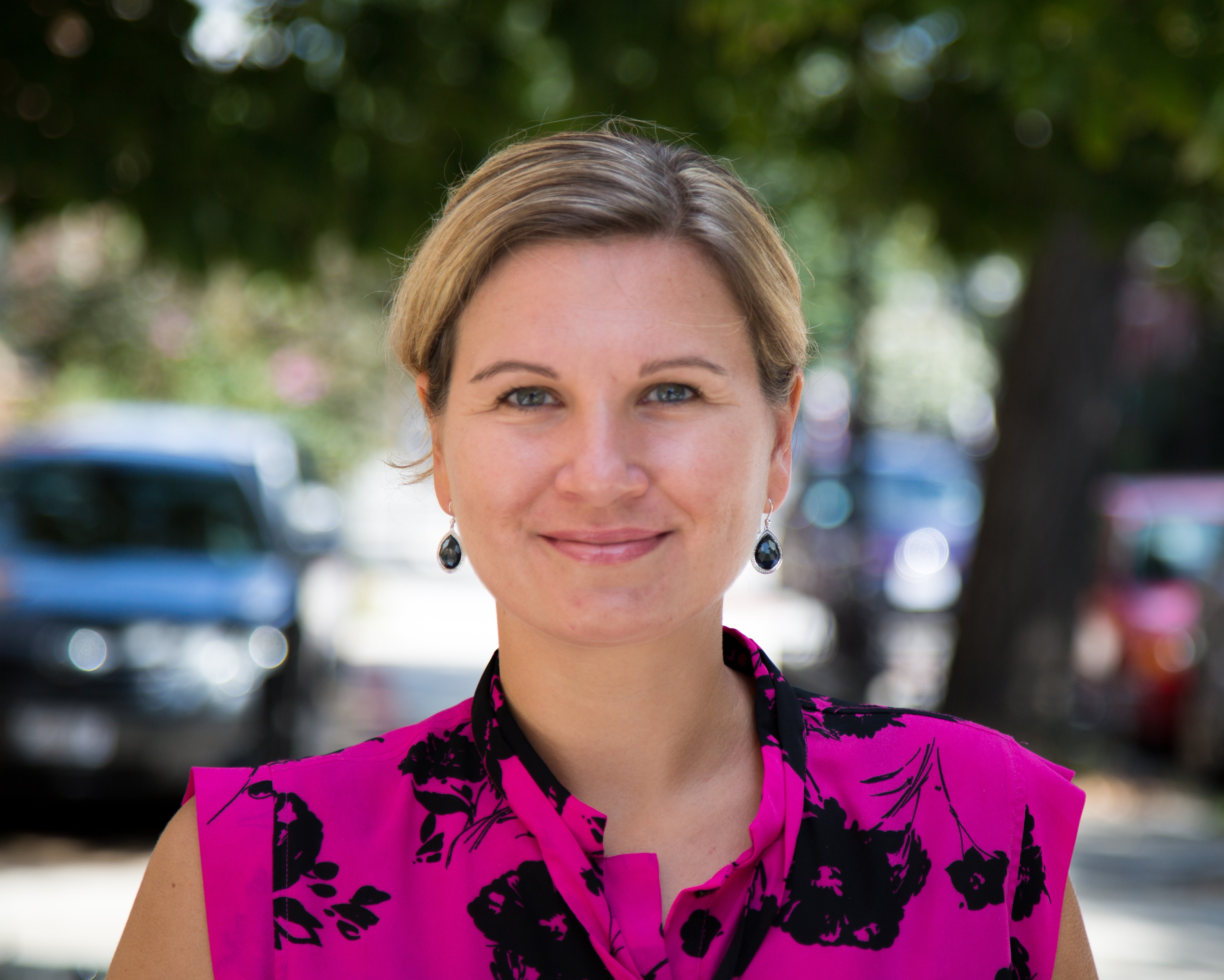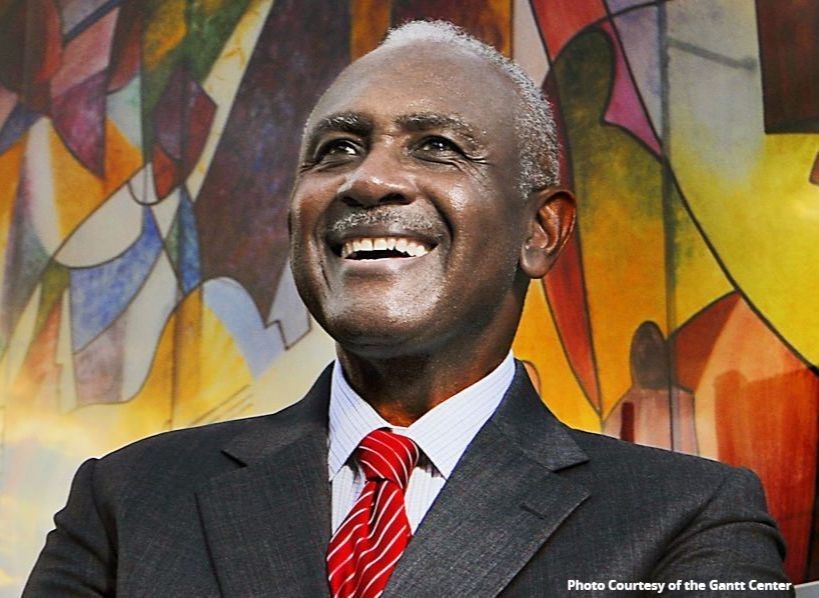A Conversation on Regional Mobility

Geraldine Gardner
Centralina Regional Council
Executive Director

Harvey Gantt, FAIA
Former Mayor of Charlotte
Principal, Gantt Huberman Architects
On September 30, 2020, we gathered a collection of key regional leaders for a special CONNECT Beyond virtual event to discuss the importance of regional mobility. This event featured a candid conversation between Centralina Regional Council's Executive Director Geraldine Gardner and former Charlotte Mayor Harvey Gantt. The event also included a moderated panel discussion about the social equity opportunities related to public transit and why transit planning is still essential during the COVID-19 pandemic.
GARDNER: Some might say, ‘This isn’t the right time to do this type of visionary planning… in your opinion, why is this conversation and this initiative around regional mobility so important?
GANTT: Charlotte and the political boundaries defined in this region cannot compete with the fact that we live in a region that has been growing by leaps and bounds… in regional efforts, the timing is right. The best places to be in the country are those that are receptive to new industries coming in that connect people very well and connecting those people to jobs, commerce, recreation, and so forth; we have to deal with these kinds of things and make the region more viable for people to live in, and others to come into this area. Mobility is at the center of that effort.
How we connect Charlotte with Rock Hill, Concord, Gastonia… how we pay for it, how much preparation are we doing, is Charlotte operating in isolation? Those were my concerns, but I’ll tell you, listening to this discussion, I’m really encouraged that people have got their eyes open, and [are] listening closely, and operating in the area of connectivity.
The fact is that if we are not addressing mobility, if we are not addressing how we connect as a region, we will find ourselves in a period where those population growths cited over the last 40 years will start to diminish because the region will not be as viable. So yes, it’s a good time to deal with this.
GARDNER: As a region, do you think that mobility is that topic that can create a bridge between people from different backgrounds, with different needs, with different perspectives on mobility, and how we pay for it; is this the issue that could bring our region together, or is it something else?
GANTT: Yeah, this is something that can bring us together… if I can go into marginal neighborhoods and show them how building the right transit system will connect them to jobs in a relatively short period of time, that is a benefit, that is an opportunity…
How we engage the community, even as we plan these systems, they have to see their future, they have to see the kitchen table issues that they are concerned about reflected in the plans for connecting the region. If they can’t see it, then I think we have a problem.
GARDNER: How would you make the case to someone who might be in Iredell County, or living in Salisbury, or in Rock Hill? What would be that message to them about why they should care about being connected in a regional system?
GANTT: [By] shining a ray of light to the mobility that those people may have to get to a lot of different things. If I live in Cabarrus County, and I’ve got to find a job on the edge of Charlotte, I need to be able to get there. If I’ve got a relative that lives in Anson county, I need to have a way to get there reasonably easy without using a car. [They] also need to understand that we can’t continue with 80 to 90% of the people moving in the region through single occupancy vehicles. The damage it does to the environment cannot be acceptable in the region that we want to have in the years ahead. We’ve got to make the case that whether you live in a small town of the region, or in the heart of Charlotte [for] why it’s important that all of us be able to move around.
GARDNER: What do you think are the issues that are most closely aligned between these two efforts that we need to closely coordinate on as we move both the regional work here at CONNECT beyond, and the work focused on Charlotte?
GANTT: A transformational network, in my opinion, talks about connectivity and ability of people to move in all modes of transportation
We need to see this thing in its totality, because I think that’s how you ultimately sell it to the region, to the citizens who are going to benefit from it.
We need to be interconnected as we move forward to build the connectivity… I don’t think Charlotte can move forward without the folks in Gastonia, Concord, and other [regions].
GARDNER: What other communities are you looking at as models that we should aspire to pull lessons learned from their experience of trying to bring regional stakeholders together to really move the needle on mobility?
GANTT: We actually studied three cities that are close to us in size, in land area and population mix. Those three cities were Austin, Texas, Broward County, Florida, and Nashville. We came away with three things that they did well:
They were forward-looking, not just talking about one mode of transportation.
They were bold in their aspirations, not evaluating based on what we can afford.
They had high levels of civic engagement.
We aren’t going to succeed in this region unless the citizens are with us and they understand what the benefits are going to be, because at some point they have to assess whether or not they want to pay for it and ultimately they are the ones that have to pay for it.
GARDNER: To close… What are the top two or three things that you’d like to see every elected official that touches in the ecosystem of transportation and mobility in our region do to coordinate with each other and build a coalition? What is your advice and maybe your expectation that you’d like to share?
GANTT: Let me say what I might be thinking about. I might be thinking about the long-term vision of what I want this region to be about down the road. I might be thinking about my nine grandchildren and how they’re going to navigate in a region and how that region is going to be attractive from all standpoints in terms of educational development in terms of the development of jobs and good jobs that pay decent wages about how that region is going to support economic mobility.
Pollution beyond that makes a lot of people sick and health care systems that don’t work as well and are not as accessible because they’re so difficult to get to. Those are costs that we can’t afford as a region. I would care about how beautiful this area is now and how we do the best we can to make the proper investments to support keeping it that way in the years ahead.
